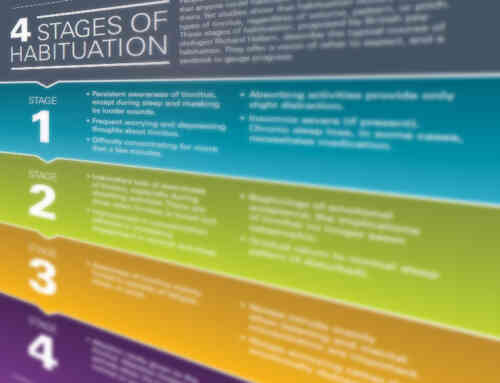Tinnitus is a common condition and is characterised by a ringing, hissing or other unwanted sounds that appear to originate in the head or body. Tinnitus is not a disease itself but is usually a symptom of some other underlying condition or as a result of damage to the inner ear. It affects many people and can be a great cause of distress and anxiety.
IS IT IN THE EAR OR THE BRAIN?

Our brain is updated constantly with new information. Neurons or nerve cells in the brain receive signals from our ears about what is happening in our environment and process this information. When there is a hearing loss, these electrical signals from the ear diminish, but the brain is still on alert and waiting for information.
In its efforts to make sense of this lack of sound input the brain becomes more aware of previously ignored electrical signals and these are perceived as new sounds, or tinnitus.
CAUSES OF TINNITUS
The most common cause is damage to the inner ear, the cochlea, as a result of exposure to very loud noise, a side effect of certain prescription drugs, or even if your ear is blocked with wax. Changes in blood pressure can also trigger tinnitus which means it can actually be a useful ‘early warning sign’ of a more serious condition.
Any sudden drop in hearing often accompanied by tinnitus should be assessed urgently as this could be due to Sudden Sensorineural Hearing Loss which is a medical emergency.





